Ukraine shot down many UAVs in the Danube region, China and South Korea expressed their stance on waste discharge at the Fukushima plant, the EU expressed concern about Central Africa... are some notable international news in the past 24 hours.
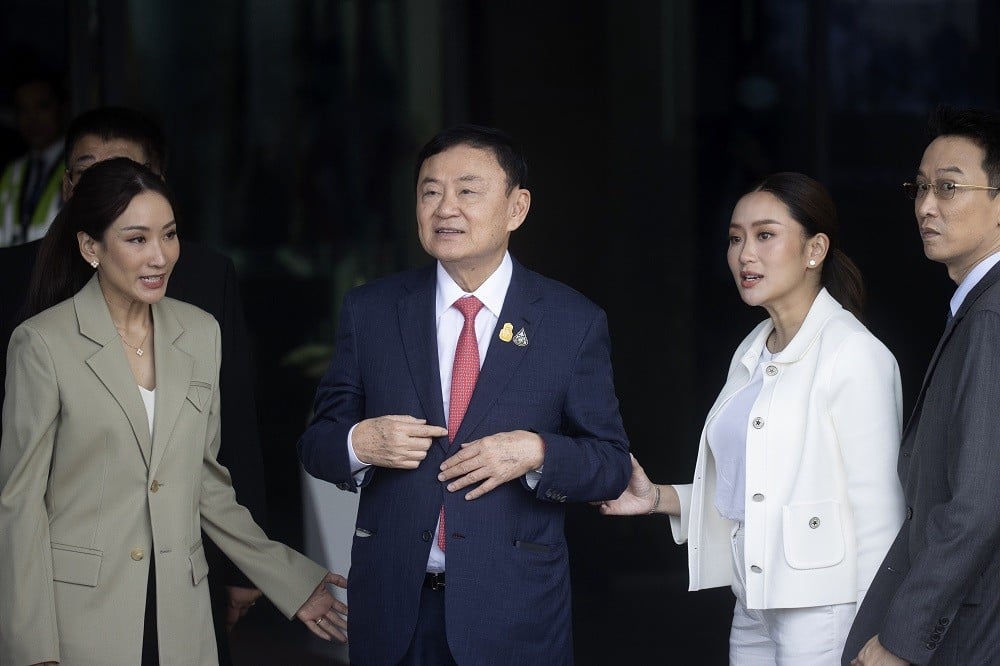 |
| Former Prime Minister Thaksin Shinawatra and his two daughters at Don Muang airport, Thailand, August 22. (Source: AP) |
The World & Vietnam Newspaper highlights some of the day's international news highlights.
* Russia wants to end the conflict in Ukraine : On August 23, speaking at the BRICS Summit, Russian President Vladimir Putin reiterated the Kremlin's view that the conflict in Ukraine is a response to being forced by Kiev and the West's actions. The leader also affirmed that Moscow will take advantage of its role as BRICS chair next year to strengthen the group's role in the international arena. The next BRICS summit will be held in Kazan, Russia, in October 2024.
South African President Cyril Ramaphosa affirmed that BRICS member countries will continue their efforts to end the conflict between Russia and Ukraine. (Reuters)
* Ukraine shot down 11 out of 20 UAVs attacking the Danube region: On August 23, the Armed Forces of Ukraine (VSU) and local authorities said that overnight, Russian unmanned aerial vehicles (UAVs) attacked the south of Odessa and the Danube River in southern Ukraine, a key area for grain exports.
“The enemy attacked grain storage facilities and a production and transit complex in the Danube region. A fire broke out at the warehouse but was quickly brought under control. Firefighters continue to work,” the VSU Telegram said. Ukraine’s air defenses shot down 11 of the 20 Russian drones involved in the attack. (Reuters)
* The Netherlands provides mine clearance equipment to Ukraine: On August 22, during a visit to Kiev and a meeting with his host counterpart Oleksiy Reznikov, Dutch Defense Minister Kajsa Ollongren stated: “A decision has been made to provide about 1,000 mobile devices for remote mine clearance, which can create paths in designed fences… Currently, as we know, you are facing a dense mine problem in many territories.”
The statement came as Ukraine's counter-offensive has slowed down against heavily mined Russian defenses. On the same day, German Foreign Minister Annalena Baerbock said that helping Ukraine clear huge amounts of mines could become a joint effort between Berlin and its partners. (Reuters)
* The US does not support attacks on Russian territory : On August 23, a US State Department spokesman said that the US does not encourage or support attacks inside Russia. The official emphasized that Ukraine has the right to decide how it chooses to defend itself against Russian military activities.
Earlier, the Moscow government said that Russian air defense forces shot down a UAV that was trying to attack the Russian capital early on August 23. (Reuters)
| RELATED NEWS | |
 | Ukraine situation: Simultaneous airstrikes in Odessa and the Danube, what did President Putin say about Zaporizhzhia, Luhansk and the upcoming elections? |
Southeast Asia
* Cambodia's new cabinet prepares for its first meeting : On August 23, the 7th term Cambodian Council of Ministers will hold its first plenary session on the morning of August 24 under the chairmanship of new Cambodian Prime Minister Hun Manet.
The first plenary session of the 7th tenure Royal Government of Cambodia will discuss and announce the “Pentagon Strategy” Phase I, 2023-2028.
The session will be live-streamed on the Facebook page of “Dr. Hun Manet, Prime Minister of Cambodia” and the Fresh News (Cambodia) news site.
Previously, on August 22, at the first session, the 7th National Assembly of Cambodia voted for a vote of confidence to approve the new Cabinet with new Prime Minister Hun Manet. (Fresh News)
* Thailand: King approves new Prime Minister: On August 23, Thai media quoted House of Representatives spokesman Kampee Ditthakorn as saying that Srettha Thavisin was approved by the King as the 30th Prime Minister of Thailand after passing the prime minister election on August 22. The royal approval order was announced at 6:00 p.m. on August 23 at the headquarters of the Pheu Thai Party (For Thailand).
In the vote held at the National Assembly on August 22, Mr. Srettha received 482 votes in favor, 165 votes against and 81 abstentions, surpassing the majority to become the next Prime Minister of Thailand.
Speaking to reporters at the Pheu Thai Party headquarters, Srettha Thavisin thanked lawmakers for their support. “I will do my best and work tirelessly to improve the quality of life for the Thai people,” the politician said. (Bangkok Post)
* Thailand announces the reason for former Prime Minister Thaksin's hospitalization : On August 23, the Department of Corrections, Ministry of Justice of Thailand announced that former Prime Minister Thaksin Shinawatra was transferred from Bangkok Remand Prison to the Police General Hospital on the night of August 22 due to chest pain, high blood pressure and low blood oxygen levels.
According to the source, Mr. Thaksin was transferred to the Police General Hospital by helicopter. He was then taken to a private room for special patients, Royal Suite 1401, 14th floor of Maha Bhumibol Rachanusorn 88 Phansa Building.
According to Deputy Director General of the Department of Corrections Sitthi Sutivong, the prison warden reported that Mr. Thaksin could not sleep, suffered from chest pain, high blood pressure and low blood oxygen levels while isolated in the prison hospital. Because the Corrections Hospital lacked medical equipment, the doctor decided to transfer the former prime minister to the Police General Hospital, which is better equipped, to ensure his safety. At the same time, prison staff were deployed at the hospital according to the Department of Corrections regulations.
In a statement, the Thai Police General Hospital also clarified that transferring prisoners to this medical facility is normal according to the memorandum of understanding that the Department of Corrections signed with the Thai Police on May 1, 2020.
In a preliminary examination before being imprisoned, Mr. Thaksin was diagnosed with ischemic cardiomyopathy, hypertension, pulmonary fibrosis and spondylosis. (TTXVN)
| RELATED NEWS | |
 | 6 priorities of new Cambodian Prime Minister Hun Manet |
South Pacific
* Australia wants to resume FTA negotiations with the EU : On August 23, Australian Assistant Minister for Trade Tim Ayres emphasized that resuming stalled negotiations on a free trade agreement (FTA) with the European Union (EU) is his priority at the G20 trade and investment ministerial meeting in Jaipur, India.
So far, he said, EU officials have “given too little and asked for too much.” Talks on the landmark deal collapsed in July amid disagreements over Australian farmers’ access to the vast EU market. Mr Ayres said a deal would only be possible if there were major changes to EU meat import quotas.
Despite the ongoing dispute in the negotiations, however, ministerial-level officials from both sides have expressed optimism about the possibility of reaching a deal. In July, Australian Trade Minister Don Farrell said the negotiations would conclude with goodwill, diligence and perseverance. (Xinhua)
| RELATED NEWS | |
 | Australia and Philippines hold first joint air exercise in South China Sea |
Northeast Asia
* Fukushima plant discharge: China “will take necessary measures”, South Korea is ready to sue if necessary: On August 23, the Chinese Foreign Ministry said that the country “will take necessary measures to protect the marine environment, food safety and public health”.
Meanwhile, speaking at a press conference on the same day, South Korean Prime Minister Han Duck Soo said: "The Ministry of Foreign Affairs is always ready to file an international lawsuit if the discharge does not meet safety standards." He emphasized that South Korea will ask Japan to immediately stop the discharge if the concentration of radioactive substances in the water exceeds the standard. Under the agreement, the Seoul government will receive relevant data in real time from Tokyo in the early stages after Japan starts discharging and will monitor the concentration of 69 types of radiation.
Earlier, on August 22, the Japanese government announced that the discharge of treated radioactive wastewater would begin on August 24, if weather conditions permitted. However, this move has faced opposition from some neighboring countries.
Previously in July, a safety report by the International Atomic Energy Agency (IAEA) confirmed that the Japanese government's discharge of radioactive treated wastewater would have a negligible impact on people and the environment. (Vietnam News Agency)
| RELATED NEWS | |
 | Behind the story of Fukushima's waste disposal plan |
Europe
* Russia replaces Aerospace Forces leader : On August 23, RIA (Russia) reported that Moscow has appointed an acting commander of the Aerospace Forces to replace General Sergei Surovikin, who "disappeared" after the rebellion of the private military corporation Wagner in June.
“Former Commander-in-Chief of the Russian Air Force and Space Forces Sergei Surovikin has now been dismissed. General Viktor Afzalov, head of the Main Staff of the Air Force, is temporarily acting Commander-in-Chief of the Air Force,” an unnamed source revealed.
During the Wagner uprising from June 22-24, Surovikin, who had commanded Russia’s military operation in Ukraine, appeared in a video, looking uncomfortable and without his insignia, calling on Wagner leader Yevgeny Prigozhin to resign. After the uprising ended, unconfirmed Russian and foreign news outlets said Surovikin was under investigation for possible complicity in the uprising and placed under house arrest.
During Russia’s military intervention in Syria, Surovikin was nicknamed “General Armageddon.” In October 2022, he was put in charge of Russia’s military operations in Ukraine. But in January this year, that role was passed to General Valery Gerasimov, chief of the General Staff of the Russian Armed Forces, with Surovikin appointed as his deputy. ( Reuters )
* Spanish King nominates right-wing leader to form new government : On August 22, after consulting with leaders of major political parties, King Felipe VI nominated Mr. Alberto Nunez Feijoo as a candidate to form a new government in Spain.
Earlier, King Felipe VI met with Mr. Feijoo, leader of the Popular Party (PP), and acting Prime Minister Pedro Sanchez, who is also the leader of the Socialist Party (PSOE). This was the second day of consultations between the Spanish king and the leaders of the major political parties, after the general election results on July 23 showed that no political party was capable of forming a new government on its own.
Speaking at a press conference the same day, Spanish Parliament Speaker Francina Armengol said she would soon contact the candidate nominated by the King to set a date for the debate and vote in Parliament. The Spanish Constitution stipulates that the Royal Family will nominate a Prime Minister candidate to campaign and pass a vote in Parliament. The regulation does not specify whether this candidate must be the leader of the party with the most support from voters.
According to the rules, Mr Feijoo will have two chances to become Prime Minister once the time for debate in the National Assembly is set. Accordingly, this politician will need to receive the support of all 176 MPs in the first round of voting. If not, he will only need to win a simple majority (ie more votes in favor than against) in the second round of voting, which will take place 48 hours later. If Mr Feijoo fails to succeed, caretaker Prime Minister Sanchez will have the opportunity to form a government.
In case no candidate can win enough support to form a new government within two months, the current Parliament will be dissolved and a new general election will have to be held 47 days later. (TTXVN)
| RELATED NEWS | |
 | Spanish Elections: PSOE in trouble, what are the opportunities for PP? |
Middle East-Africa
* EU warns of “ polarization ” in Central African Republic : On August 23, in a post on social media, EU foreign affairs spokesman Peter Stano stated: “The EU takes note of the results of the constitutional referendum in the Central African Republic”. The official also expressed “concern about the continued polarization of the political landscape” in the Central African Republic, while emphasizing that “the EU calls for more inclusive and transparent democratic procedures” in the country.
Earlier, on August 21, the Central African Republic's Supreme Court approved the results of the July 30 referendum, in which 95% of voters supported the constitutional changes. The constitutional amendment, which was heavily criticized by the opposition, removed the two-term limit and extended the president's term from five to seven years. (AFP)
* South African President warns of protectionism : Speaking at the BRICS Business Forum Leaders' Dialogue on August 22 ahead of the bloc's 15th summit, South African President Cyril Ramaphosa said that BRICS economies have "emerged as strong engines of global growth" and "the changes that have taken place in BRICS economies over the past decade have contributed to changing the global economy."
However, he warned: “The new wave of protectionism and the resulting unilateral measures inconsistent with WTO rules undermine global economic growth and development. Therefore, we reaffirm our view that economic growth must be underpinned by transparency and inclusiveness.”
Noting that rapid economic, technological and social change is creating new risks to employment, equality and poverty in many BRICS countries, he called on the business community to “join us in identifying solutions to these and other challenges affecting our respective economies.” (Xinhua)
Source





![[Photo] Magical moment of double five-colored clouds on Ba Den mountain on the day of the Buddha's relic procession](https://vphoto.vietnam.vn/thumb/1200x675/vietnam/resource/IMAGE/2025/5/9/7a710556965c413397f9e38ac9708d2f)
![[Photo] Prime Minister Pham Minh Chinh chairs a special Government meeting on the arrangement of administrative units at all levels.](https://vphoto.vietnam.vn/thumb/1200x675/vietnam/resource/IMAGE/2025/5/9/6a22e6a997424870abfb39817bb9bb6c)

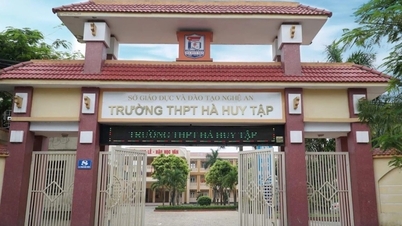

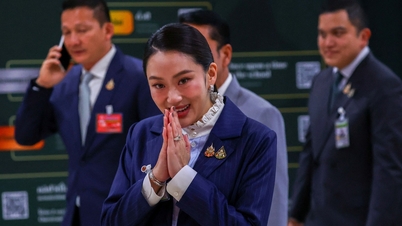

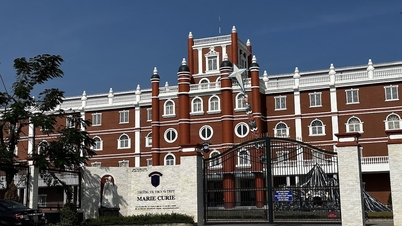

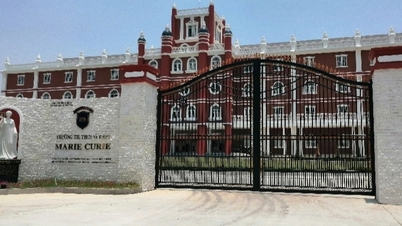


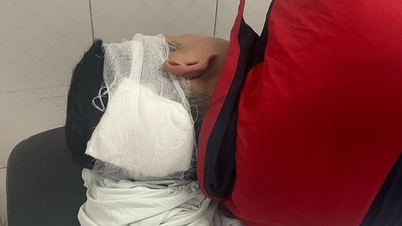

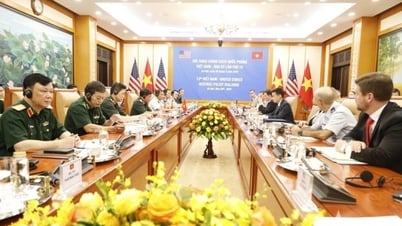


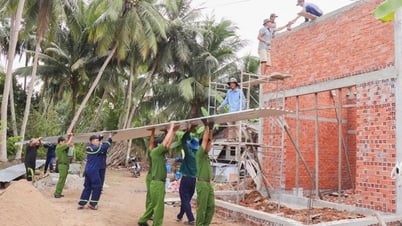
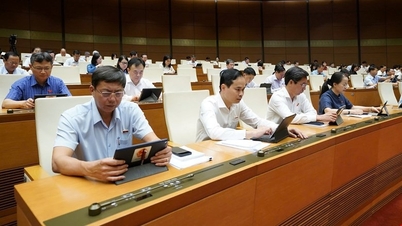
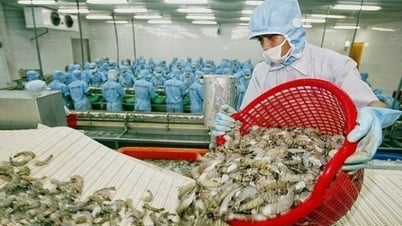






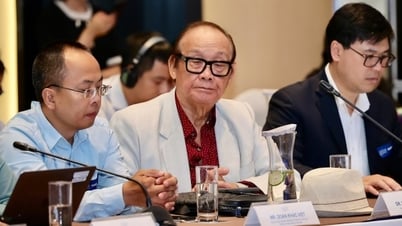
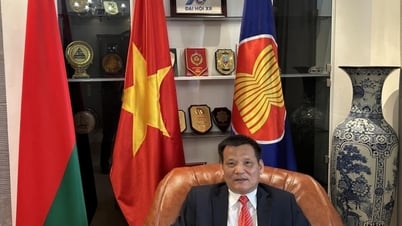
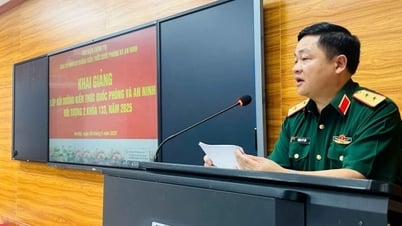































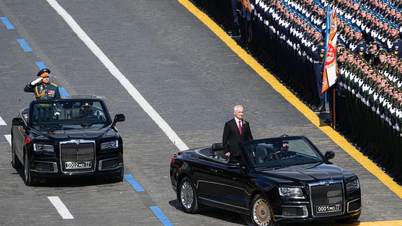
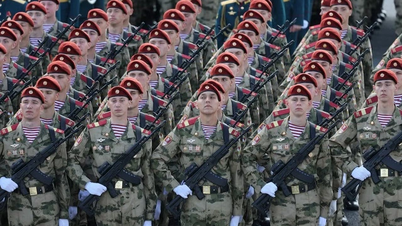
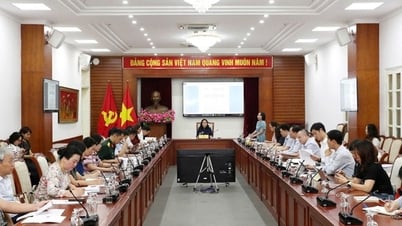


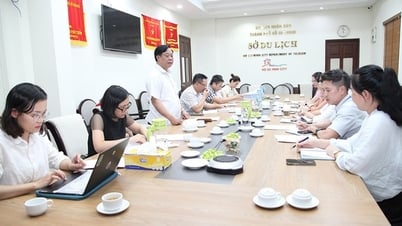
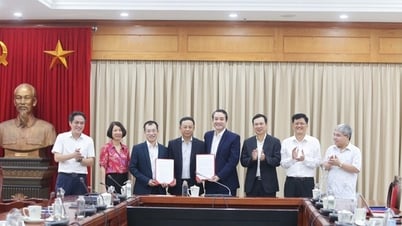

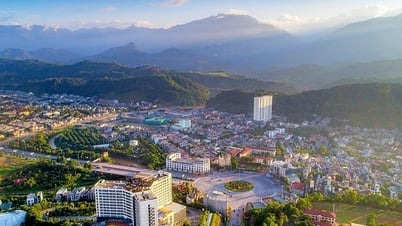
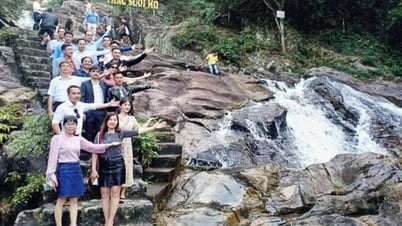
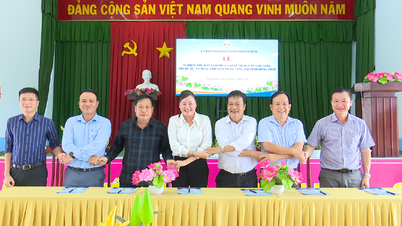

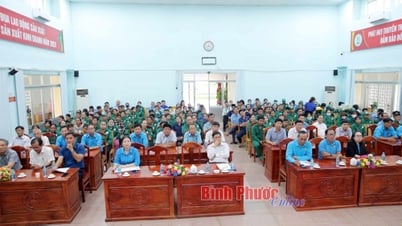

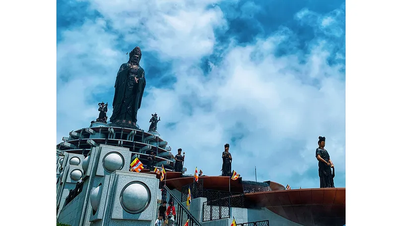

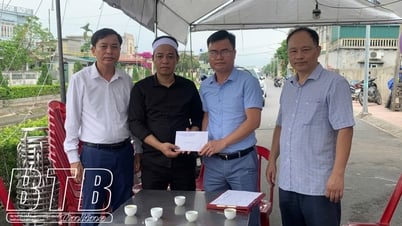
















Comment (0)